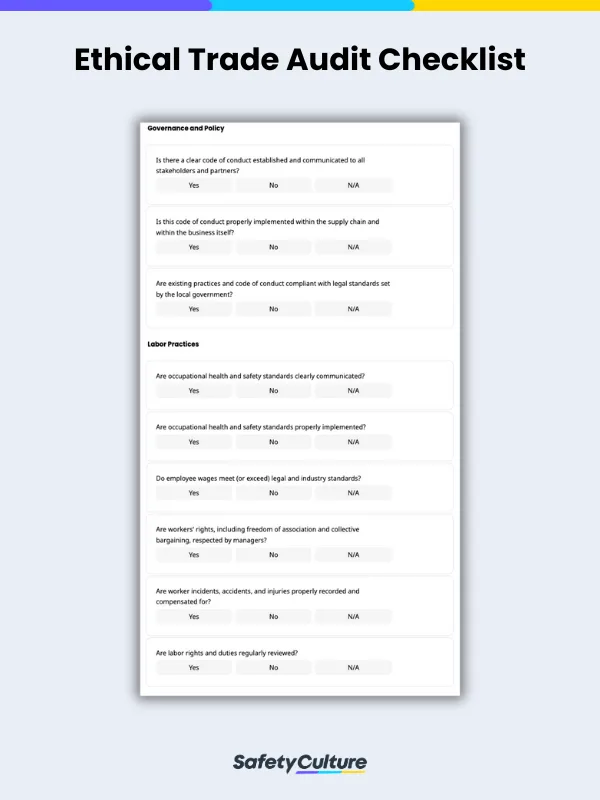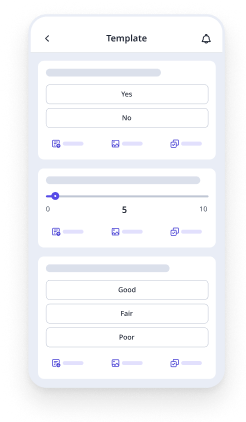Published 26 Sept 2025
Article by
3 min read
What is a Trade Audit Checklist?
An ethical trade audit checklist is a document or digital tool designed to evaluate and ensure a business’ compliance with ethical standards throughout the supply chain. It focuses on examining areas related to labor practices, environmental responsibility, and business ethics to ensure a fair and safe experience for all parties involved.
Importance and Benefits
Using an ethical trade audit checklist is crucial for organizations aiming to ensure responsible practices throughout their supply chains. Primarily, this tool aims to help organizations identify potential risks related to labor rights,health and safety, and environmental practices within their supply chains, both from their workers and those they transact with. By systematically evaluating these areas, issues can be proactively addressed before they escalate, thereby protecting business reputation, ensuring operational continuity, and maintaining compliance with legal standards.
Relatedly, a dedicated ethical trade audit checklist promotes transparency by documenting compliance with ethical standards. This is vital for building trust with consumers and stakeholders, who increasingly demand accountability from companies regarding their sourcing practices. Subsequently, having this checklist also helps ensure companies have a more competitive advantage in the marketplace, as many individuals look into an organization’s Corporate Social Responsibility (CSR) efforts and ethical stances when deciding which business to support.
What to Include in an Ethical Trade Audit Checklist
Companies can prepare for an ethical trade audit by establishing clear policies and procedures related to ethical trading, training employees and suppliers on compliance requirements, and conducting internal assessments to identify potential issues before the official audit. By understanding these aspects, organizations can better navigate the complexities of responsible sourcing and enhance their overall commitment to ethical business practices.
A typical ethical trade audit checklist often has the following:
Business name
Name of person accomplishing the audit checklist
Inspection fields for the following aspects of a business to ensure they are ethical:
Governance and compliance
Labor practices
Supply chain proceedings and practices
Environmental impact and responsibilities
Social impact
Reporting practices
Continuous improvement policies and practices
Fields for additional comments and recommendations
Signature of auditor or inspector
For a more efficient and effective process, considering using a digital platform to create, manage, and use an ethical audit checklist. Digital checklists allow for better organization and storage of audit data, making it simpler to analyze trends and track compliance over time. This minimizes the risk of losing important documentation and facilitates easier follow-up on corrective actions.
Here is a sample report of a digital ethical trade audit checklist in use for reference:



